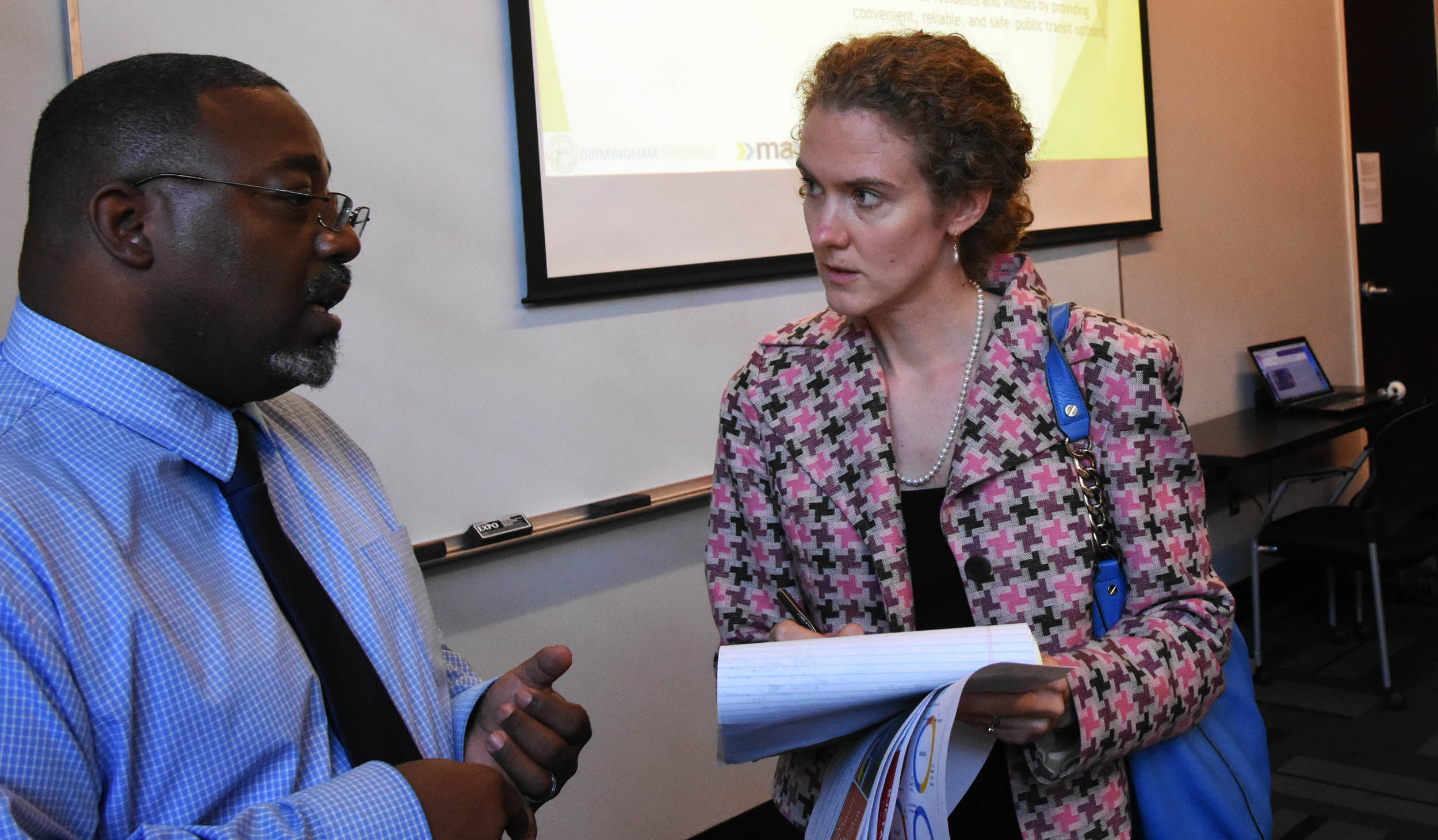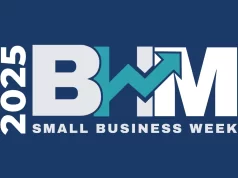
By Solomon Crenshaw Jr.
For The Birmingham Times

Roommates Meaghan Lowery, 25, and, Alicia Manker, 22, who live in Ensley, ride the bus to work at a restaurant off Lakeshore Drive every day it runs—which excludes Sunday. That’s a bone of contention for Manker.
“I hate the bus system because it doesn’t run on Sundays and some buses don’t have stops on Saturdays,” she said. “That’s when people are usually working, on Saturdays and Sundays. Other than that, it’s OK.”
Gregory Johnson, 72, has a 1988 Cadillac parked in the driveway of his South Titusville home. It doesn’t run, so he rides the bus to buy groceries. His assessment of the transit system in Birmingham: “Terrible.”
“They’re very seldom on time, but when they come, you’re glad they’re there,” said Johnson, who lived in Oregon for 27 years and returned to Birmingham in 2012. “I know why that is. They don’t have any money. It can be a little better if they come up with some money and get better buses and things of that nature.
“If you don’t have a car in Birmingham, you’re kind of messed up,” he said.
Officials working to improve Birmingham’s transit system are aware of the challenges riders face.
Charles Ball, executive director of the Regional Planning Commission of Greater Birmingham, recalled a cousin of his who had cancer and depended on local transit. The lack of reliability caused her to miss appointments.
“She deserved better, and all those other people in the same position deserve better,” he said. “This is the greatest country on Earth, and we shouldn’t put our residents in that position.”
There have been improvements, Ball said, and he expects bigger and better from the Birmingham Jefferson County Transit Authority (BJCTA) “as long as [Executive Director] Barbara Murdock doesn’t go anywhere.”
A goal for the transit authority now is to increase the frequency of buses running on routes. The planning commission has done several studies over the past 12 years to determine how Birmingham-area transit needs to improve.
One thing that came out of those studies: Bus Rapid Transit (BRT), which is similar to a light-rail system, but its vehicles have rubber tires. It features dedicated lanes for its buses and electronic systems that give its buses preference as they approach traffic signals.
Darrell Howard, project manager for STRADA Professional Services, an engineering and consulting firm, has been heavily involved in BRT system planning. Birmingham was awarded a $20 million Transportation Investment Generating Economic Recovery (TIGER) grant from U.S. Department of Transportation to help develop that system. The plan is for the BRT to be in place by 2021, when the Magic City hosts the World Games.
“This is Birmingham’s opportunity to shine for the world,” said Howard, who formerly worked for the Regional Planning Commission of Greater Birmingham. “Birmingham recognizes that its transit system is in need of overhaul, and this event is a catalyst for that overhaul. We want to make transportation simpler for [out-of-towners] and, at the same time, provide benefits for the city’s residents. We’re going to make transportation in Birmingham simpler, easier, and more convenient.”
Where three of Birmingham’s big transit projects standINTERMODAL FACILITY Scope of project: The intermodal center will serve as a single station, bringing together BJCTA’s MAX buses, Amtrak and intercity bus system via Greyhound and Megabus under one roof on Morris Avenue, between 17th and 19th streets. Cost: $30 million Projected completion date: The Max facility is expected to open Dec. 20, while the Greyhound, Megabus and Amtrak terminals will open in March 2017. Status: Due to some construction delays, the opening of the Max portion of the facility was moved from November to the end of December. The BJCTA did recently pass resolutions to enter into leases with Greyhound and Megabus for the Facility, and have contracted Birmingham catering business Olivia’s to handle food service for the facility. The BJCTA is also looking into purchasing property around the facility to be used for parking. BUS RAPID TRANSIT PROJECT Scope of project: The project will connect 25 west and east Birmingham neighborhoods that are primarily low-income communities. It will utilize the Intermodal Station, and two new Community Transit Centers are planned at Five Points West and Woodlawn. Princeton Baptist Medical Center, Loveman Village, UAB, North Avondale, East Lake and Parkway East will host Super Stops where multiple local bus routes will interface with the BRT. Cost: $66.5 million Projected completion date: 2019 Status: Murdock said the project is still on schedule, but not without some bumps in the road. The city received a $20 million TIGER grant last fall, but that represents only a third of the total costs of the project, and since most of the new routes go through the historic districts of almost all of the communities the BRT will serve, more environmental studies and assessments need to be made to move the project forward. DOWNTOWN CIRCULATOR Scope of project: The plan would replace the current DART system, which circulates six days a week covering Five Points South to Uptown and the BJCC, and east to west from the Water Works building to 14th Street North and 14th Street South. Advocates say the circulator project is critical because it will help boost transit ridership by giving a convenient public transit option for traditional car users to utilize while in the city center. Cost: $4.7 million Projected completion date: 2019 Status: The project has been absorbed into the BRT project, which is scheduled for completion by 2019. Source: The Birmingham Business Journal. |




